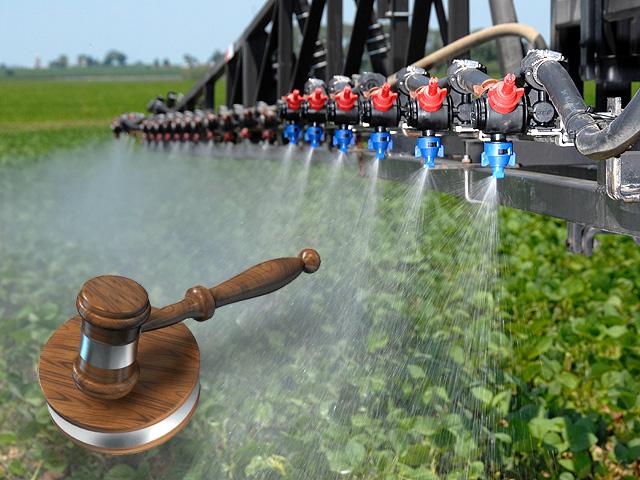Judge Wants EPA's Dicamba Plan
Court Asks EPA for Agency's Long-Term Dicamba Plan
ROCKVILLE, Md. (DTN) -- Confused about EPA's intentions toward over-the-top dicamba use?
So is the federal judge tasked with deciding its future in the U.S. District Court for the District of Arizona, where environmental groups led by the Center for Food Safety and Center for Biological Diversity have asked the court to vacate the registration of three dicamba herbicides: XtendiMax (Bayer), Engenia (BASF) and Tavium (Syngenta).
U.S. District Judge David C. Bury recently issued an order in that case, declining to restart that lawsuit but asking for more information from EPA, after the agency's uncertain and sometimes contradictory comments on the future of dicamba use on dicamba-tolerant crops in the past year.
"It is ordered that ... the EPA shall file a report on the status of its ongoing evaluation of its options for addressing future dicamba-related incidents relevant to any potential regulatory action related to the 2020 dicamba registrations," the judge's order stated, giving a deadline of May 15, 2022.
P[L1] D[0x0] M[300x250] OOP[F] ADUNIT[] T[]
"The EPA shall describe its schedule and explain how it fits into the 2022, 2023, etc. growing season(s)."
In the meantime, the case remains "stayed," or paused, while another court -- the D.C. Circuit Court of Appeals -- decides a jurisdictional question of whether lawsuits over the 2020 dicamba registrations belong in federal appeals courts, instead of federal district courts.
The plaintiffs initially asked Bury to lift the stay after EPA released a document in December 2021, detailing widespread off-target dicamba injury allegations, despite the 2020 label changes. (See more here: https://www.dtnpf.com/….) In court filings, EPA, along with dicamba registrants Bayer, Syngenta and BASF, have argued that the agency is still "reviewing options for addressing future dicamba-related incidents," and pointed to EPA's recent decision to modify the federal label to add cut-off dates for Minnesota and Iowa farmers. (See more on that here: https://www.dtnpf.com/….) But EPA officials have also stated repeatedly that the agency is uncertain that it can continue to defend over-the-top dicamba use, particularly in regard to risks posed to endangered species and critical habitats. (See more on that here: https://www.dtnpf.com/….)
In his order, Bury acknowledged the environmental groups' claim that "egregious ramifications" could occur if the 2020 dicamba registrations remain in place and expressed confusion about when and how EPA might proceed with regulatory changes to address ongoing dicamba injury complaints -- and how the timing might affect farmers.
"... both the EPA and Intervenors [Bayer, Syngenta and BASF] seem to suggest this review must be undertaken in the context of the growing seasons because of the delicacy needed to make changes so as to not upset growing seasons once they are underway," Bury wrote. "The Court does not know what this means for the actual time frame the EPA anticipates moving forward with the potential future regulatory action it has now initiated."
Ultimately, "The Court would like a clearer picture of the relevant growing seasons in relation to the timing of this ongoing review and the D.C. [lawsuit's] briefing schedule," Bury concluded.
The request pushes any possible court-related impacts on dicamba use deeper into the season, as EPA has until May 15 to fulfill this order.
Emily Unglesbee can be reached at Emily.unglesbee@dtn.com
Follow her on Twitter @Emily_Unglesbee
(c) Copyright 2022 DTN, LLC. All rights reserved.






